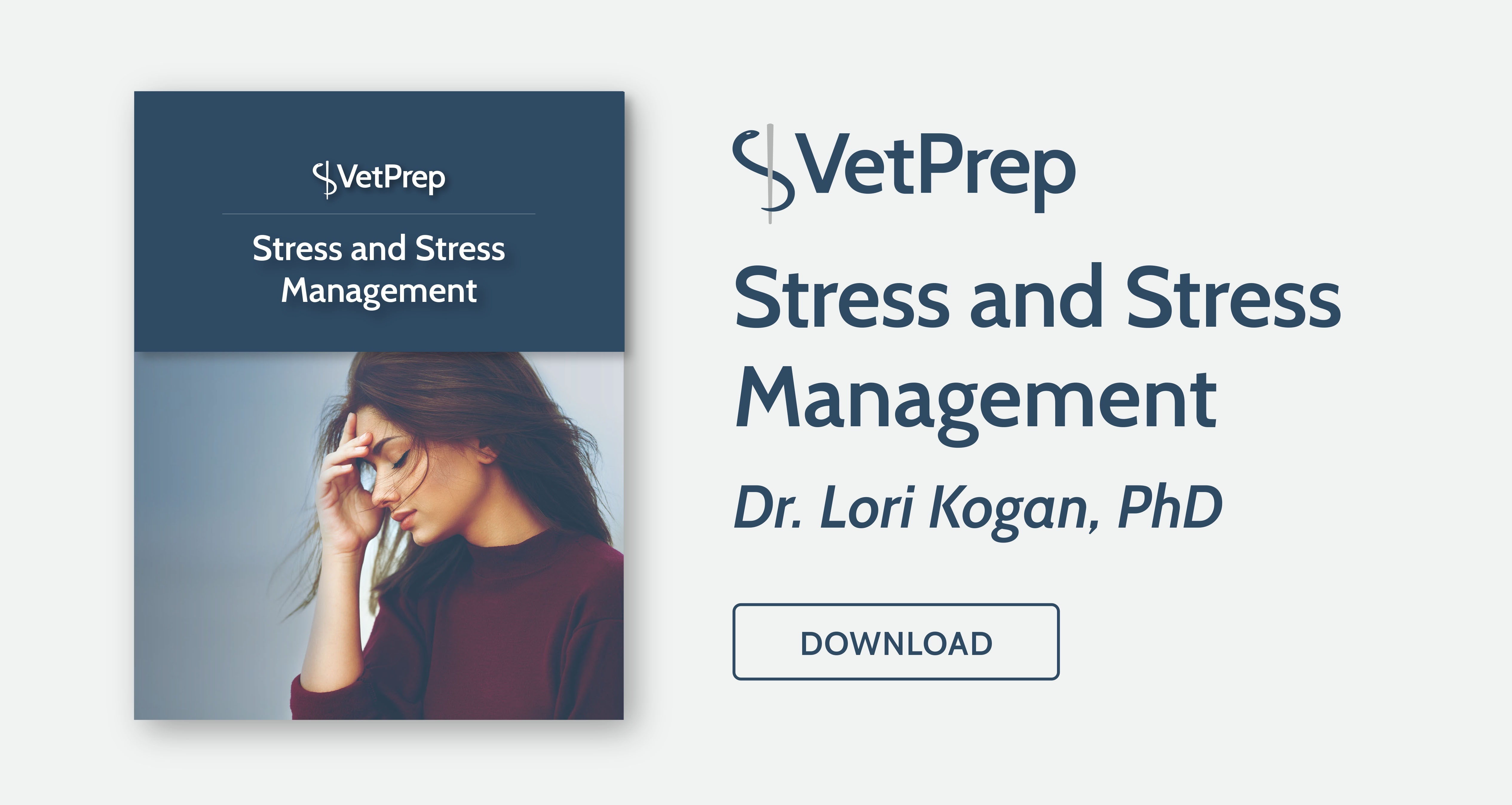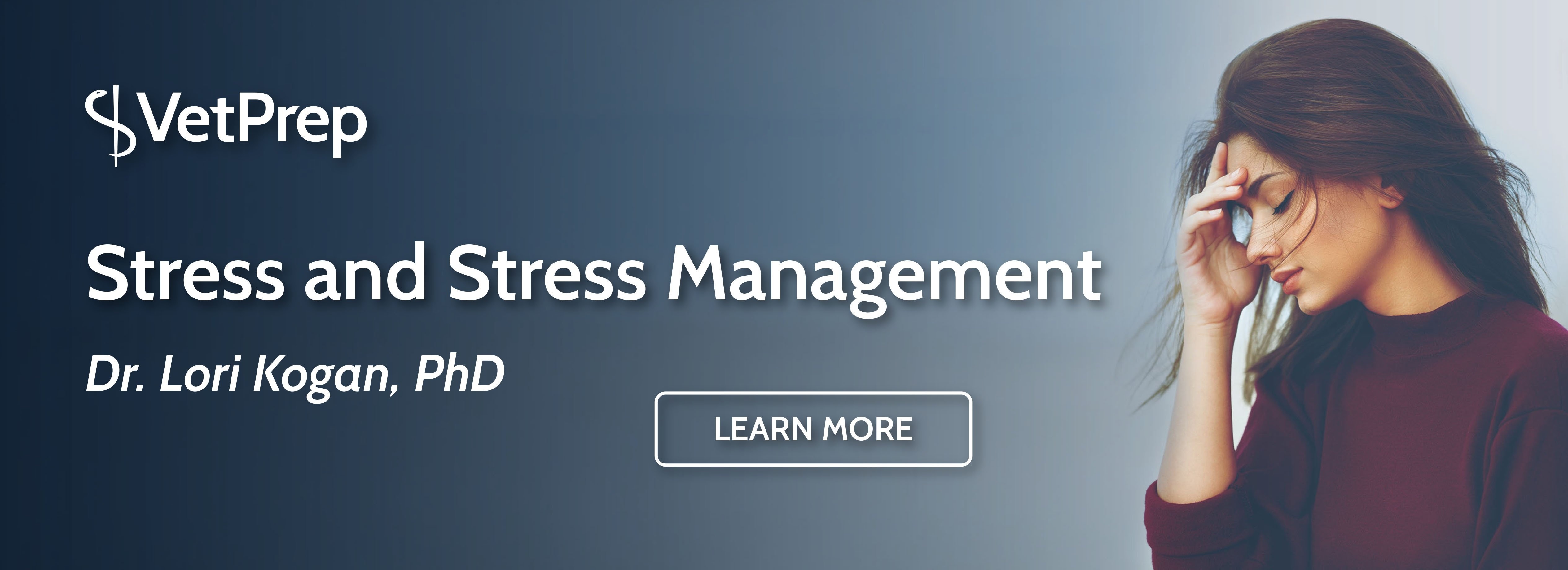
It’s always been interesting to me how differently individuals in the general public view our profession. I’ve had people tell me, “it is a beautiful profession” to “that’s got to be one of the hardest jobs.” I wonder if maybe veterinary medicine lies somewhere in between or in a combination of these two statements. Personally, I believe our profession can be both incredibly rewarding and profoundly difficult.
There are so many external factors that make practicing veterinary medicine challenging. But there’s also internal factors that can make it even more difficult to be in this profession – from depression to anxiety to mood disorders and others – there are many mental health challenges that can affect us.
Thankfully, veterinary professionals’ wellbeing has recently become a focus in our profession. There are many resources available to help and support veterinarians. Below is a list of resources that I have come across in my research. There is no doubt that we are all worthy of wellbeing so if you are struggling, I encourage you to seek out the help you need and deserve.
1. AVMA Resources
The American Veterinary Medical Association has a section for Wellbeing and Peer Assistance. There are many different types of resources that can be helpful such as a self-assessment, information about self-care, work-life balance and many other important topics. If you click on the “Get Help” link, it takes you to this page called Get Help where there are many more resources listed under the “Veterinarians and other medical personnel” section.
Additionally, If you are an AVMA member veterinarian, you can participate in discussions about a variety of topics related to work – life balance and wellbeing. These discussions are a way to connect with other AVMA member veterinarians to communicate and support each other. (9)
2. National Resources
There are many national organizations that are dedicated to supporting mental health awareness and suicide prevention. For example, the American Foundation for Suicide Prevention by clicking this link: AFSP and the National Alliance for Mental Health (NAMI) can be accessed at the following link: NAMI (2, 7)
3. Support from Family and Close Friends
Maybe your family and friends are not in veterinary medicine so it’s hard to believe that they will understand how you are feeling. However, in my opinion, it is a good idea to at least reach out and share your feelings with them. Maybe they can understand and help, or at least, provide some of the support you need.
4. Private Appointments with Mental Health Professionals
In my opinion, it is a good idea to seek out mental health care with a private counselor, therapist or psychiatrist and/or other mental health professionals that you can meet with regularly. Having routine, consistent appointments with the same person or people can build feelings of trust, which are so important to working through mental health concerns.
5. 1 Life Connected
1 Life Connected was created by a Veterinarian, Dr Kimberly Pope-Robinspn. On the website, it is stated that “Dr. Pope’s goal is to provide visibility, awareness, and a greater understanding of the various struggles that are common among medical professionals and ultimately helping to guide individuals to find personal solutions to professional wellbeing and career contentment.” (1)
6. Immediate Help
The National Suicide Prevention Lifeline can be reached at 1-800-273-8255 or by texting TALK to 741741. Please contact them immediately if you are in a state of crisis. (7)
7. Veterinary Team Resources
In an article by Dr. Michele Gaspar, it is stated that “Veterinary professionals may be more predisposed to mental health challenges than the general population. By recognizing this potential predisposition, practice team members can take specific, positive actions to help improve their mental health and wellbeing.”
By clicking this link, AAHA article, you can read the article and follow the steps to download a PDF from AAHA that is called “Guide to Veterinary Practice Team Wellbeing.” (3)
8. Books, Webinars, and Workshops (4)
Books:
Compassion fatigue in the Animal – Care community by Dr. Figley and Dr. Roop explains causes for compassion fatigue and how to conquer it.
The American Animal Hospital Association has published a book called When Helping Hurts: Compassion Fatigue in the Veterinary Profession discuss compassion fatigue and strategies for how to cope with it.
Dr. Kimberly Pope - Robinson’s book, “The Unspoken Life,” offers how to “Find balance between the negative and the positive. Harness the seven core principles of connection. Overcome challenges with empathy and humor. Recognize, embrace, and connect to life again.” (1)
Webinars:
VetGirl has a webinar called “Suicide-Awareness in Veterinary Medicine – should we be alarmed? At the end of the webinar, a number of helpful resources are listed.
Workshops:
Certainly, Veterinarians aren’t the only ones affected by mental health concerns. Other veterinary professionals can be greatly affected as well. Creating a culture of support is important for any workplace but is especially important in our profession. If you or your practice are looking for a way to understand more about compassion fatigue, IT may be a good to contact Katherine Dobbs, RVT, CVPM, PHR who has been known to “speak at veterinary conferences and local meetings in addition to providing consulting work and workshops on compassion fatigue for the veterinary team.” (4)
9. Social Media Support
There are numerous support groups on social media. One group in particular, called Not One More Vet (NOMV) is dedicated to suicide prevention for veterinarians. While I am not advocating to rely on social media to help with mental health concerns, it is a resource that has been helpful for many people that can be used in conjunction with other resources.
10. Resources by State
On a state level, there may be some programs for wellbeing that are available to licensed veterinary medical professionals. It is stated that, “the AVMA Division of State Advocacy researched state laws and regulations that authorize or establish wellbeing programs for licensed veterinarians. Some programs cover other licensed veterinary professionals such as veterinary technicians. These laws and regulations vary in scope and mission; the programs can include peer assistance, professional recovery, dependency, impairment and diversion.” The link to this research can be accessed by clicking here: State Wellbeing Programs for Veterinary Professionals
There are also many other state level resources. According to the AVMA, “ In many states, the contact is the state veterinary medical association, but many states also feature peer-assistance volunteers, “on-call” individuals who can provide support and information to veterinarians and their families in need of assistance.”
Also, the state of Tennessee has well-being resources available to both resident and non - resident veterinarians. You can reach a veterinary social worker at the University of Tennessee Veterinary Social Work Program by calling 1-865- 755- 8839 or emailing vetsocialwork@utk.edu. (8)
Summary
Do you remember why you set out on this path to becoming a veterinarian? Do you remember how proud you felt when you received your acceptance letter or four years later, your degree? Do you remember that case you had where the sick patient you cared so much for got to go back home, tremendously healthier and happier, than when he or she came in?
I encourage you to hang on to those memories and please seek the help and support you need if you are a veterinarian struggling with mental health challenges. This profession needs each and every one of us to keep on helping our patients and advocating for them and each other.
References:
- 1 Life Connected.
- American Society for Suicide Prevention. Retrieved from https://afsp.org
- Gaspar, Michele. “Why Veterinary Caregivers May Be Predisposed to the Challenge of Finding Joy and Fulfillment in Our Profession.” AAHA.
- Mental and emotional health resource list for veterinary teams. Need help with your burden—or know someone who does? Start with this list. DVM 360.
- National Alliance on Mental Illness.
- National Suicide Prevention Lifeline.
- State wellbeing programs. AVMA.
- 9. Wellbeing and Peer Assistance. AVMA. Retrieved from https://www.avma.org/ProfessionalDevelopment/PeerAndWellness/Pages/get-help.aspx



